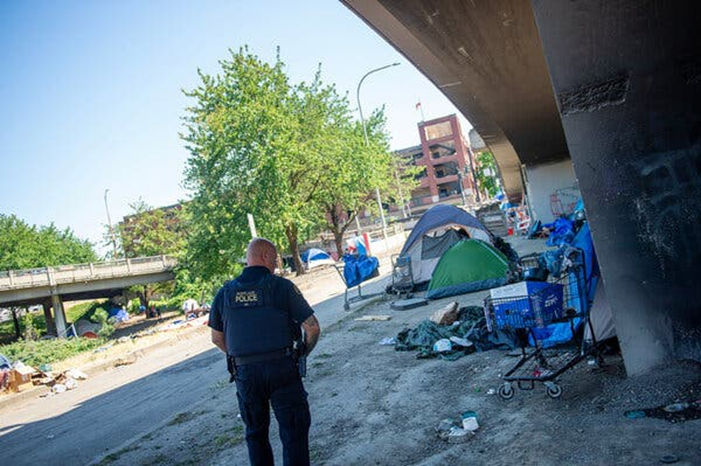Growing concerns around homelessness in Portland, Oregon have led many residents to adopt jaded, and often spiteful, attitudes towards people living in the streets of the city. A 2023 survey revealed that Portlanders view homelessness and the escalated cost of living as the city’s biggest issues, leading to widespread dissatisfaction with local government actions. Another recent poll found that a majority of residents favor fining and arresting homeless campers, despite the city’s lack of safe shelters or other alternatives.
These frustrations have spurred calls for more extreme
measures, including increased policing and anti-camping laws, as band aid
solutions to the homelessness crisis. However, such approaches fail to address
the root causes of homelessness and often perpetuate the cycle of displacement
and instability. In order to find humane solutions, we need to understand the
underlying symptoms of homelessness and dispute anti-homeless attitudes.
Understanding the Root Causes
Homelessness is a multifaceted issue influenced by various
factors, and understanding these factors is the first step towards sustainable
change. Portland has experienced one of the nation’s highest cost-of-living
increases over the past decade, with the median household income falling
significantly below the necessary amount to sustain a family of four.
Simultaneously, the city is suffering from housing shortages that have driven
up costs, making it increasingly difficult for residents to afford stable housing.
To make matters worse, many individuals experiencing homelessness grapple with
mental health issues and substance abuse, which are often exacerbated by a lack
of access to adequate healthcare services. This combination of economic
instability, housing shortages, and health challenges can be directly linked to
the dramatic surge in homelessness in the last few years.
Shifting Perspectives for Effective Solutions
To effectively address homelessness in Portland, it’s
crucial to move beyond punitive measures and adopt compassionate,
evidence-based strategies. One such strategy is to invest in affordable
housing, since exorbitant housing costs affect many of the city’s residents.
Allocating resources to develop affordable housing units can provide long-term
stability for those on the brink of homelessness. Additionally, enhancing
support services such as mental health care, substance abuse treatment, and job
training programs can address other underlying issues contributing to the
crisis. Lastly, and perhaps most importantly, we must bolster community
engagement. Encouraging community involvement in supportive initiatives fosters
empathy and collective responsibility. By enacting solutions that prioritize
human dignity and systemic change over scrutiny and punishment, Portland can
pave the way toward a future where homelessness is addressed at its core.
How You Can Make a Difference
As Portlanders, we have the power and the responsibility to make meaningful change. One contribution you can make is supporting local policies that prioritize affordable housing and comprehensive support services over punitive measures. Engaging with organizations dedicated to assisting individuals experiencing homelessness is another way you can offer your skills and compassion to help those in need. If nothing else, educating yourself and others on the complexities of homelessness helps combat stigma and promote understanding. By embracing a compassionate and informed approach, we can work together towards a Portland where everyone has the opportunity to thrive.
Sources:
Oregon Live
OPB
https://www.opb.org/article/2023/08/01/portland-homeless-camps-cost-of-living-oregon/



No comments:
Post a Comment